Prepped & Ready To Go
By
4 years ago
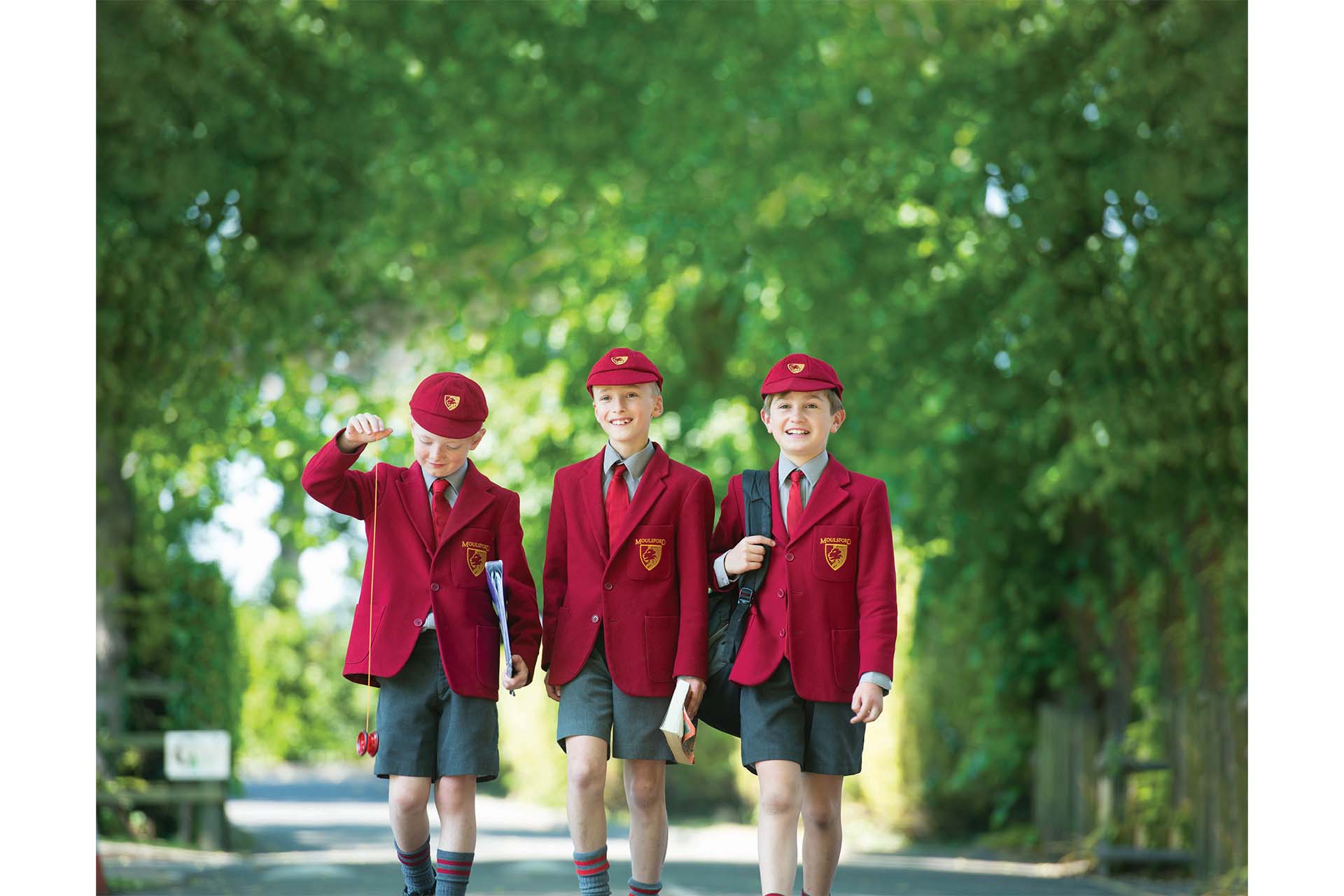
Melanie Cable-Alexander makes the transition from prep to senior school
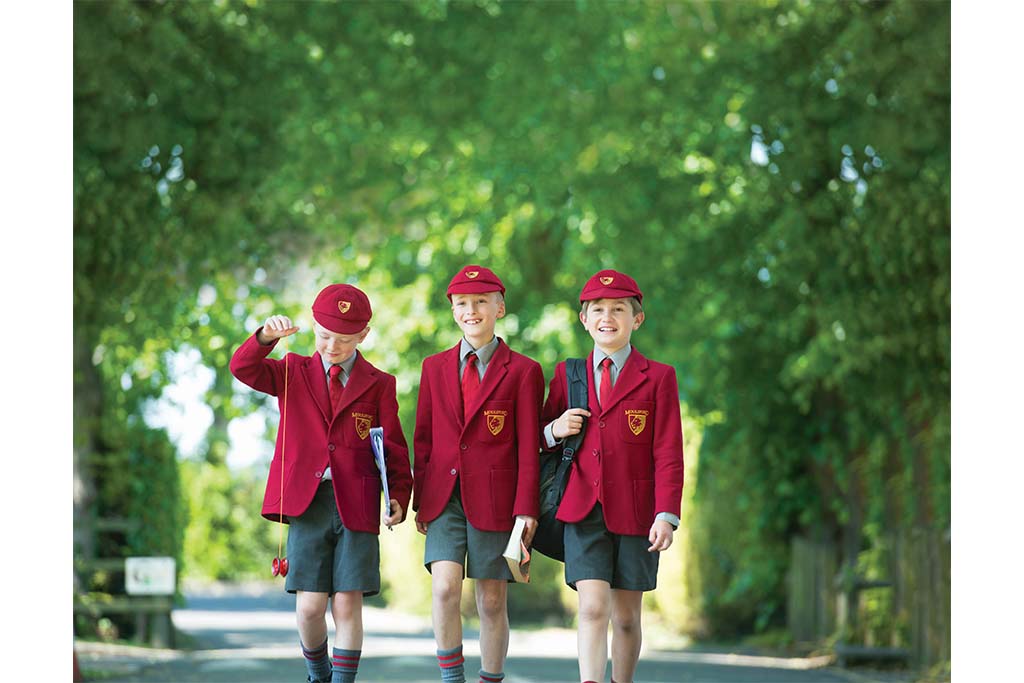
Transitioning from prep to senior school can feel terrifying to a ten-year-old but if it’s done well, the same child, a year or two later, is desperate to get out of his or her prep school and rides the wave of transition with aplomb. For behind that transition process is an army of dedicated teachers working hard to send each pupil on their way.
It’s all in the name. Prep schools ‘prep’ children for their next school and ‘stand or fall’ by their senior school destination. However, this brings pressure which is ultimately borne by the pupils so a good head works hard to prepare them for the process. These days, the Common Entrance exam at aged 13 is less popular and more emphasis is being placed on the pre-test or 11+.
Consequently, greater stock is on the interview as opposed to the actual assessment, says Bridget Saul, headteacher of London prep school Cameron Vale in Chelsea. ‘Schools like Winchester, Wellington and Cranleigh use the ISEB pre-test at 11 to whittle out who they actually want to interview.’
What so many school are looking for, says Richard Murray, head of Christ Church Cathedral School, Oxford, which is pocket-sized but packs a punch in school placements to top senior schools, ‘is someone whom a teacher would love to have in their classroom. Curiosity, enthusiasm and energy are all qualities prized by senior schools. So we promote opportunities to converse. My favourite is meal times.’ Indeed, prep school heads see part of their job as making sure a child has plenty of interview practice, even if they don’t know it.

Traditionally, parents set on a specific school, tried to improve their child’s chances of selection by sending them to a feeder prep school. Ludgrove, Cothill, Summer Fields and Dragon School are all known feeder schools for Eton and Harrow, with a few off to Winchester. Horris Hill has strong associations with Winchester College and Radley College.
However, this relationship is now becoming more formalised. Aware that a degree of natural fluidity makes sense, senior schools have been acquiring their own preps. In the past year, Charterhouse has taken on Edgeborough; Godolphin and Latymer has merged with Redcliffe Prep; Sherborne School has hooked up with Sherborne Prep; Tonbridge School in Kent is merging with The New Beacon prep school and Rugby School has adopted Bilton Grange.
‘Although Bilton Grange children are not guaranteed a place it does make the pathway between the two schools easier,’ says Amanda Hunter of Rugby.
Tom Morgan, head of King’s Rochester Prep from which pupils jump into the oldest Cathedral school in the country, elaborates. ‘Many of the senior teachers also teach in Years 7 and 8. This allows staff to get to know the idiosyncracies and learning styles of pupils before they start teaching them for their GCSEs.
‘There are so many pluses,’ adds Hunter, ‘from being able to share sports staff who provide professional coaching to sharing facilities, teaching and learning.’
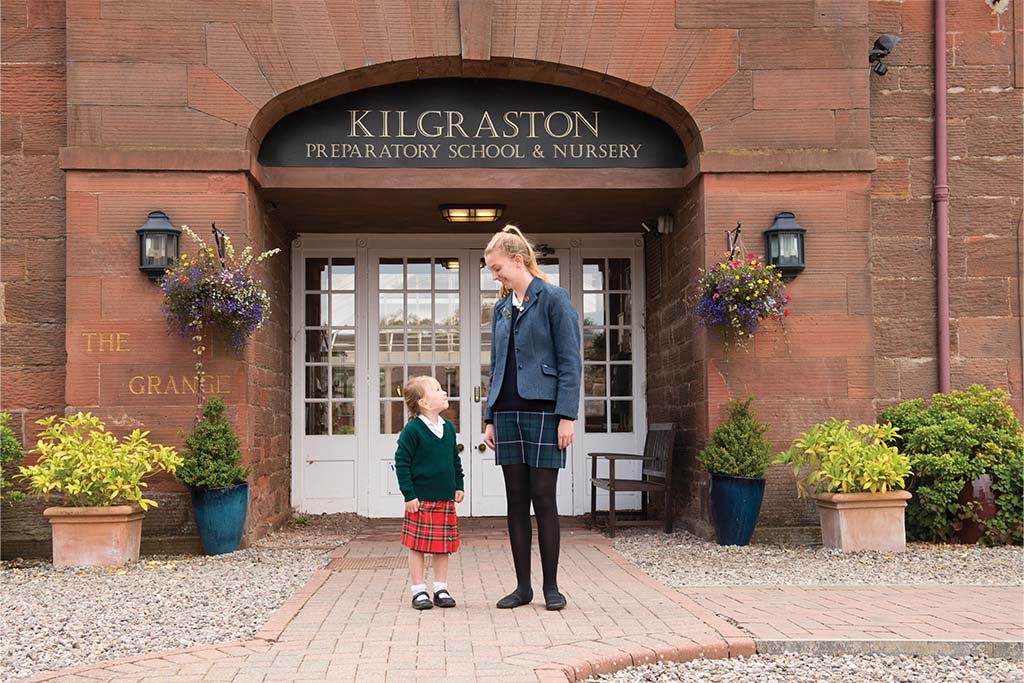
This ethos of sharing has reaped dividends for prep schools with typically smaller pockets as they rode the waves of the pandemic. ‘Our merger with Godolphin and Latymer in 2020 proved extremely helpful when it came to tackling the challenges posed by covid,’ says new head of Redcliffe School, Ben Dunhill, particularly when it came to adapting their ‘admissions and senior school transition process online.’
If the pandemic inspired a technological revolution in prep and senior schools’ use of online learning and assessments it also provoked what some might consider a regressive step in inspiring a spike in demand for boarding which is at last being recognised for its true qualities, not least being able to provide an excellent well-rounded education in splendid isolation.
‘Covid has had an interesting effect on our pupil intake,’ explains Dorothy MacGinty, headteacher at Kilgraston School, Perthshire. ‘We are seeing a big uptake from the UK often fuelled by pupils themselves, many from London and the South East, albeit with Scottish associations. Long spells at home during lockdowns has been detrimental to them.’
Prep schools which make boarding compulsory during the final years as their solution to helping the switch to boarding senior schools have witnessed the same accelerated demand, including Cothill House, Ludgrove, Dragon School, Sandroyd and Leweston Prep in Dorset.
Leweston regards boarding as such a key element of its current education strategy that it lists the top six reasons why pupils should choose boarding as an option, which include a ‘24/7 learning environment’, and ‘living away from home,’ which given the pressure pupils and parents have been under in the lockdowns of 2020 and 2021 must inspire nothing but an hallelujah’s breath of relief for both.
When heads are asked specifically what they do to make any crossover into senior school manageable beyond academics, they are remarkably unanimous in their responses: encourage ‘responsibility’ and ‘independence’ in senior years; build ‘confidence’; create an ‘I can’ outlook; teach that ‘mistakes are ok’; cultivate ‘attitudes which travel from the Science Lab to the Sports Hall’, provide ‘learning support’ for those struggling academically. These are part of the Swiss Army Knife-like set of tools with which heads are determined to equip their pupils.
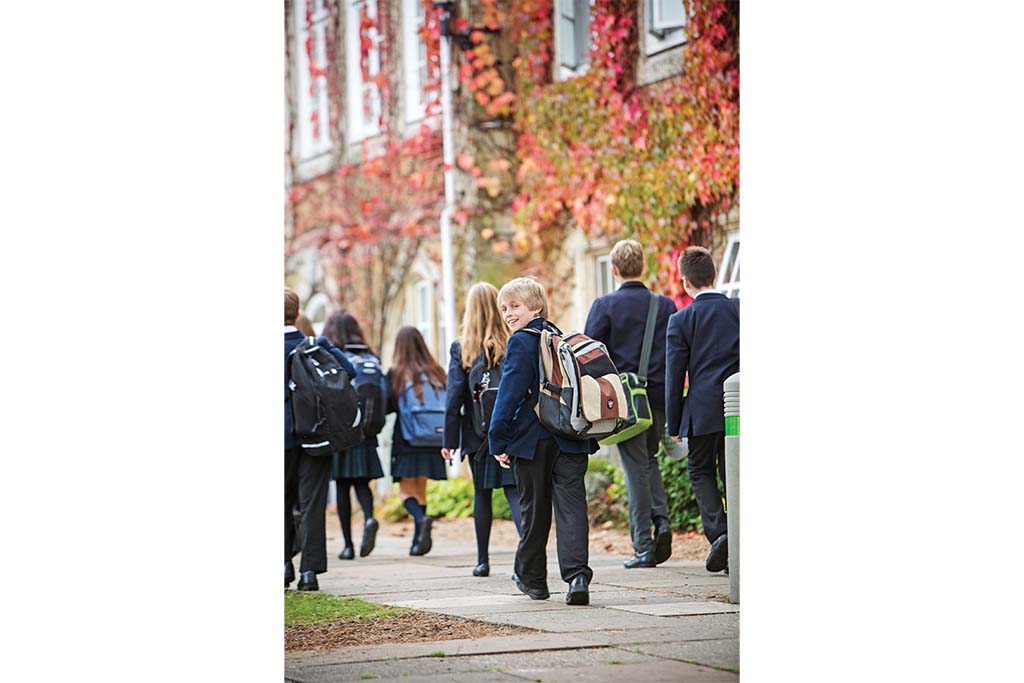
In London, in particular, heads are adding an additional tool: wellbeing. ‘There is a tangible intensity to life in London,’ explains Oliver Snowball, head of Eaton House The Manor Girls’ School. ‘In a day and age when it is all too easy for children to be critical of themselves, we want the girls to value themselves as much as they value their learning.’ He now employs a new Head of Wellbeing, open to discussing anything.
Communication is always key, especially when it comes to heads managing parents’ expectations, arguably, one of their most important and subtle of skills. At Eaton House The Manor Boys’ School, this starts early in Year 4 where parents learn not to be ‘swayed by a name’ but to think of ‘the individual child’s needs’. At St James Prep, which ensures pupils ‘have a person of warmth as well as a form tutor’ monitoring them, the head Kris Spencer urges parents, ‘not every school suits every child, but there is a school out there for every child’.
A sensible parent will listen to their head. As Richard Murray of Christ Church Cathedral School says, ‘we spend time getting to know registrars and heads of senior schools’, and are therefore good at linking pupils to schools. Like most heads he discourages tutoring. The senior schools hate it: it adds no more than an additional pressure to an already pressurised process.
At St James Prep, which ensures pupils have a person of warmth as well as a form tutor monitoring them, the head Kris Spencer urges parents, ‘Not every school suits every child, but there is a school out there for every child’
Unfortunately, most London parents ignore that message: I was once asked to pick up a friend’s twins from their tutoring group and was horrified to spot my son’s entire class there as well. Out of all them, he was the one who most justified additional tutoring as he was dyslexic but naively, perhaps, I had listened to his head. My solution was to take him out of London and place him into the more relaxed environment of a cosy country prep school.
And there are a number of prep schools just waiting to scoop up those who don’t seem to be a natural fit for high-end mainstream education. One of them is Bruern Abbey, Oxfordshire whose remit is to take dyslexic boys and prepare them for entry into mainstream senior schools, which they have been doing for several decades with considerable success.
‘We seek the way in which each child learns best and build confidence which can be at a really low ebb by the time the pupils arrives here,’ says deputy head Charles Banbury. Bruern’s results speak for themselves: ‘one of our former pupils is Deputy Head at Radley,’ Banbury says proudly, but they send boys all over to Charterhouse, Stowe, St Edwards, Milton Abbey and even to Winchester and Eton. By parental demand, the school is opening a senior school where pupils will take their GCSEs before transitioning into a sixth form environment.
Senior schools are as keen to support their newcomers as the preps are to post them over and are sensitive about integrating pupils coming from small schools to large senior ones where prefects are classed as adults and there maybe as many as a thousand plus pupils.
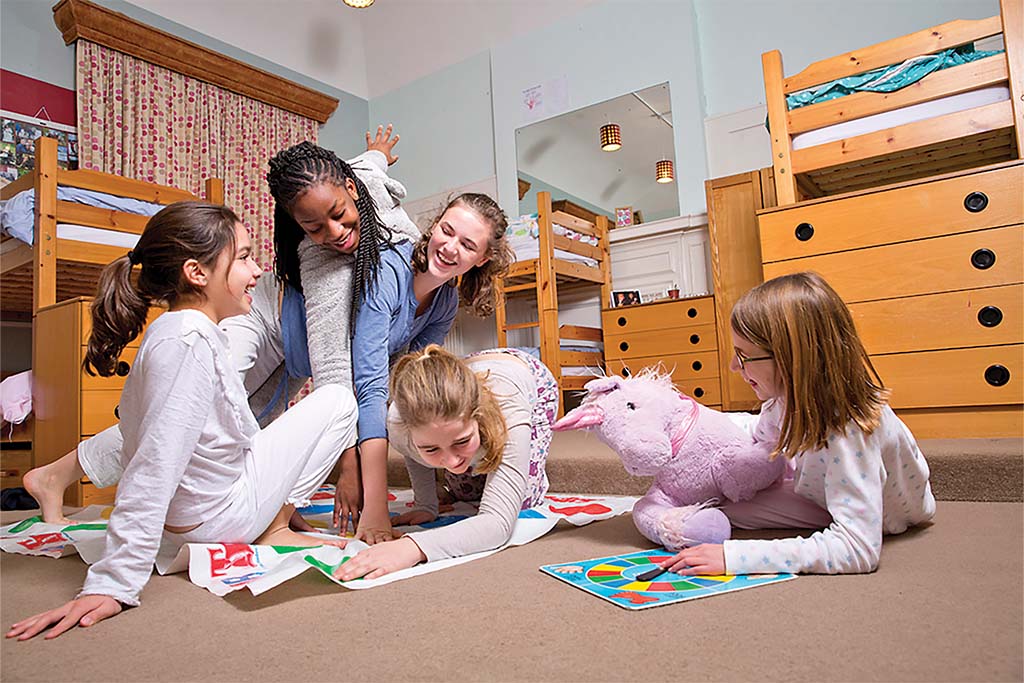
Millfield in Somerset, the largest co-ed senior school in the country with 1,250 pupils living in 19 different houses, has acknowledged the challenge of settling into a large school by creating a ‘specialist programme of dedicated Year 9 boarding houses at the heart of the campus’.
‘It’s made an enormous difference to the students transitioning into the school as they get to know one another in an age-specific environment,’ says director of Year 9, Toby Sawrey-Cookson. It also helps settle the jockeying amongst new alpha boys for position. From there, they can be channelled into the right house, getting the best fit of pupils. Bryanston in Dorset also offers a year 9 transitional house.
The girls’ school, St Mary’s Calne, in Wiltshire is one of the few schools to continue the horizontal method of boarding throughout the school because says the head, Dr Felicia Kirk, ‘vertical boarding can restrict the number of friends girls can make within their own year group. With horizontal boarding girls can get to know everyone in their year quickly.’
Most senior schools like Sherborne School try to acclimatise children before they arrive by holding taster days and appoint older pupils to mentor newcomers. But what happens if the sixth-former appointed as mentor loses interest, which can occur? Senior house master Ben Sunderland answers: ‘Well, that’s when the housemaster has to know the personality of the people he matches together and watch out for the pupil.’
And therein lies the tale, for as any seasoned parent, or indeed, head, will tell you, it’s the housemistress or master who counts. They are the person who will welcome in a timid 13-year-old, guide your child, and you, through GCSEs, A-levels and ultimately wave off a young adult to the university of life; ignore them at your peril.
READ MORE FROM AUTUMN/WINTER 2021



